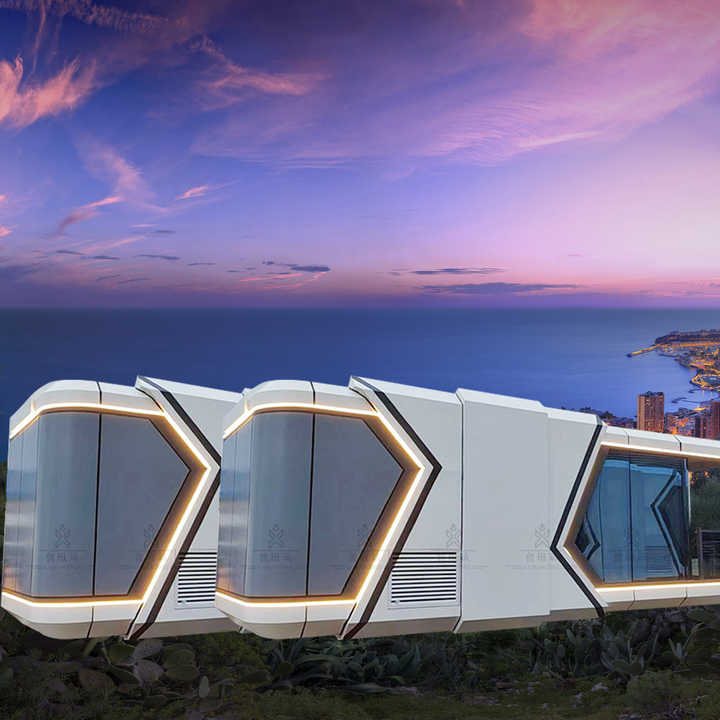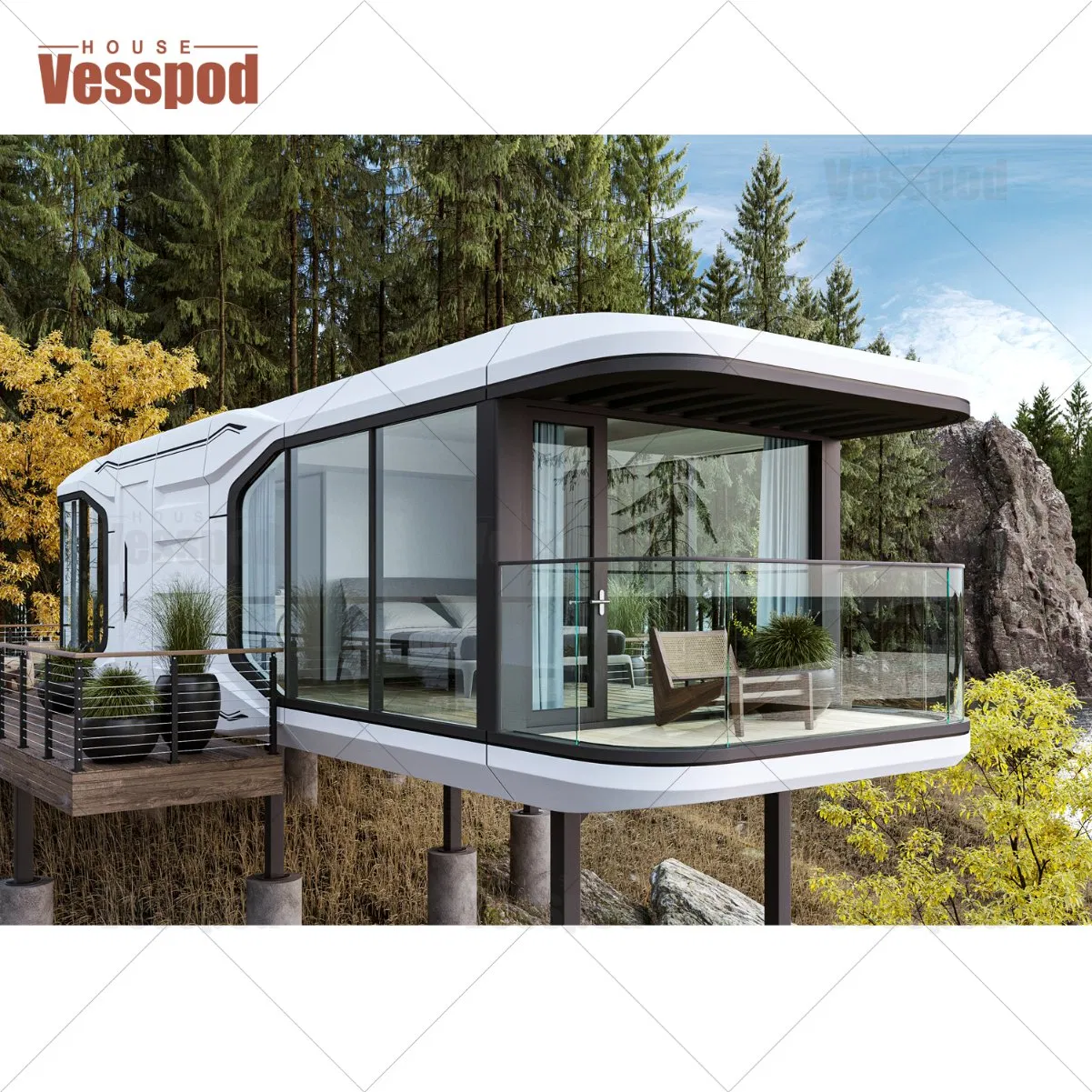How Pod Homes Are Revolutionizing Affordable Housing in Urban Areas
How Pod Homes Are Revolutionizing Affordable Housing in Urban Areas
Blog Article
Why Modular Homes Are the Future of Sustainable Living
Modular homes are increasingly acknowledged as a pivotal option for lasting living, providing a mix of effectiveness, cost-effectiveness, and environmental benefits. The flexibility of modular layouts enables for the integration of lasting modern technologies and products tailored to specific requirements.
Ecological Benefits of Modular Residences
The environmental advantages of modular homes represent a substantial step toward lasting living. These homes are constructed in regulated manufacturing facility setups, which considerably minimizes waste produced during the structure process. By optimizing products and decreasing excess, modular construction adds to a much more reliable use of resources contrasted to standard building methods.
Additionally, modular homes are commonly created with power performance in mind. Many incorporate sophisticated insulation strategies, energy-efficient windows, and lasting products, adding to lower energy usage. This can result in lowered greenhouse gas discharges over the life-span of the home, boosting its total ecological account.
The capability to transportation and put together modular elements on-site additionally minimizes the carbon footprint associated with construction logistics. Many modular homes are built to be easily upgradeable and versatile, enabling home owners to carry out lasting modern technologies, such as solar panels and energy-efficient heating systems, over time.
Eventually, the ecological advantages of modular homes not only promote sustainable living yet additionally encourage an even more accountable approach to real estate development, straightening with global initiatives to battle environment modification and maintain all-natural sources for future generations.
Cost-Effectiveness and Affordability
Building a home typically represents among the biggest monetary investments individuals make in their life time, and modular homes provide a compelling option for those looking for cost-effectiveness and cost. Among the main benefits of modular homes is their lower construction expenses contrasted to typical site-built homes. The streamlined manufacturing procedure permits considerable cost savings on labor and products, which translates to reduce rates for customers.
Furthermore, modular homes normally have shorter building timelines. This not only lowers costs connected to financing and insurance policy however also reduces the threats related to rising cost of living and rising and fall market conditions. Numerous buyers discover that modular homes can be customized to fit their spending plans without compromising top quality or layout.
Moreover, power performance is often developed right into the style of modular homes, resulting in lowered energy costs with time. Many suppliers focus on lasting products and techniques, additionally improving the long-term monetary feasibility of these homes. Overall, the mix of first price savings, quick building and construction, and continuous energy effectiveness makes modular homes an attractive alternative for those aiming to purchase lasting living without breaking the financial institution.
Performance in Construction
Modular homes not only supply financial benefits however also excel in building and construction efficiency. The modular building process includes the synchronised building and construction of modules in a factory setup while website prep work happens concurrently. This parallel technique dramatically minimizes the general timeline from conception to completion, frequently reducing building time by up to half contrasted to typical approaches.
In addition, factory-controlled settings enhance top quality guarantee. By using accuracy production methods, modular homes are built to specific requirements, decreasing waste and errors. This consistency not only leads to a better click here for info product but additionally contributes to sustainable methods by lowering product waste throughout building.
Additionally, the usage of modern-day innovation and automation in the manufacturing process allows for quicker assembly and lowered labor prices. As soon as the modules are carried to the site, they can be successfully assembled, better quickening the timeline. This structured process is not just valuable for builders but additionally lessens disruptions to the surrounding setting during building and construction.
Personalization and Layout Versatility
An outstanding range of modification alternatives distinguishes modular homes, permitting home owners to customize their home to meet certain needs and choices. This layout flexibility is a hallmark of modular building and construction, making it possible for clients to select everything from layout and space layouts to finishes and components. Unlike conventional homes, modular layouts facilitate a joint technique where contractors and architects function closely with house owners, ensuring that each aspect lines up with aesthetic desires and specific way of livings.
In addition, modular homes can be easily reconfigured or increased, accommodating changing family members dynamics or progressing personal tastes. This flexibility not just boosts the home's performance but also contributes to lasting sustainability, as homeowners can customize their areas instead of look for brand-new housing options.

Future Fads in Lasting Housing
Arising patterns in sustainable real estate are reshaping the landscape of residential construction, emphasizing ingenious technologies and environment-friendly methods. One substantial trend is the assimilation of wise home modern technology, which enhances power efficiency with automated systems that keep track of and enhance power usage. This not only reduces utility expenses however additionally adds to a reduced carbon footprint.
In addition, making use of lasting products is becoming progressively typical. Builders are going with recycled, in your area sourced, or swiftly renewable materials, which lessen ecological influence and assistance neighborhood economies. Modular homes are acquiring appeal for their lowered waste websites during building and construction and their flexibility to numerous terrains and climates.
Another pattern is the incorporation of environment-friendly roofings and living walls, which boost air top quality and offer all-natural insulation. These functions also advertise biodiversity in city locations.
Verdict
In final thought, modular homes emerge as an essential service for lasting living, supplying substantial environmental advantages with minimized waste and power efficiency. As patterns in lasting real estate evolve, capsule houses modular homes are poised to play an essential duty in advertising environment-friendly living methods for future generations.
Structure a home frequently represents one of the largest financial investments individuals make in their life time, and modular homes offer an engaging service for those seeking cost-effectiveness and affordability. One of the key advantages of modular homes is their reduced construction costs compared to traditional site-built homes. On the whole, the combination of initial cost financial savings, quick building and construction, and recurring energy effectiveness makes modular homes an attractive alternative for those looking to spend in lasting living without damaging the financial institution.
Inevitably, the modification and design adaptability provided by modular homes guarantee that they are not just structures, however individualized sanctuaries that mirror the unique identities of their occupants while advertising lasting living methods.

Report this page